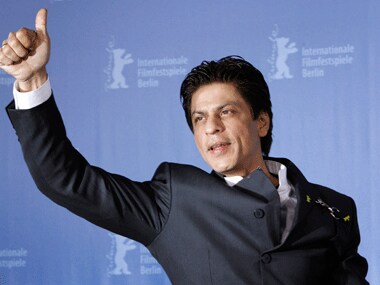I’ve always believed one thing young people in India don’t have is enough contemporary role models. We have successful cricketers like Virat Kohli who’ve shown no target is of out of reach if attached with enough hair gel and cuss words. We have the likes of Honey Singh who are making an entire generation of Punjabi singers pretend they are black. For a while, we even had Anna Hazare, who lost 80% support the minute people realised he had called for an alcohol ban in his village. The one star that has endured, however, is Shah Rukh Khan. [caption id=“attachment_1159753” align=“alignleft” width=“380”]  Reuters[/caption] Since Dilwale Dulhaniya Le Jayenge, where he became the poster boy for the post-economic-reforms Indian, Shah Rukh Khan has been one of the few individuals the whole country can agree on. I’ve personally never been a big fan, but it’s easy to see why everybody else is. He made it as an outsider in an industry more dynastic than the Congress party. He was always the good guy you could introduce to your parents. He never drove SUVs over unsuspecting pavement dwellers. Not surprising then when Rowlingate broke, besides the usual media trying to shame a celebrity routine, one also sensed disappointment. You’d never sense similar disappointment if Salman Khan had copied a speech. In fact you’d probably have fanboys say things like, “Bhai ne kya mast copy paste karke reading kiya! Ekdum Being Reader.” With Shah Rukh, it came across as betrayal. Like kids waking up one fine morning only to discover they were, in fact, adopted. Collective chants of et tu, Shah Rukh, if you will. While a speech in itself is not important and the ghost writer who composed it has probably been fired, it does bring out larger questions about our attitudes towards plagiarism. Like every comedian who writes his own material or a student who goes to a self-respecting university will tell you, the one rule that is sacrosanct is not stealing other people’s ideas. Even if you’re taking another idea, you have to attribute and cite appropriately, lest you want your career to be relegated to IIPM. Given how our school and college assignments are a mishmash of content paraphrased from Wikipedia, it’s a hard habit to break. Maybe we shouldn’t be surprised that the same system also funnels individuals into Bollywood where one feels plagiarism’s stench everywhere, from films to speeches. While this brouhaha broke out, one of my friends was having a conversation with script composer Milap Zaveri of Grand Masti infamy on Twitter. On being asked how he could justify using SMS jokes in his script, Zaveri said not everyone would have heard those SMS jokes and putting them on screen would mean more people get to hear those. He then went ahead and told my friend who is also a comedian that Zaveri would use a joke the latter does on stage in Grand Masti 3. Where does one even start a conversation in cases like this? Self-respect as a writer? Academic tradition? Openly admitting to stealing other people’s ideas for one’s own commercial gain? But the artistic community will not shun the likes of him like it would in the West because what’s considered important is the commercial bottom line and the Grand Masti series is a hit. So what choice does the one being plagiarised even have? I feel that long years ago we made a tryst with destiny, and now the time has come when we redeem our pledge, not wholly or in full measure, but very substantially. At the stoke of the midnight hour, when the world sleeps, I hope India’s creative community will awake to ethics and originality and look at how it treats plagiarism and we step out from the old to the new. Hopefully, the soul of our nation, long suppressed will find utterance.
With Shah Rukh, it came across as betrayal. Like kids waking up one fine morning only to discover they were, in fact, adopted. Collective chants of et tu, Shah Rukh, if you will.
Advertisement
End of Article
Written by G Khamba
Gursimran Khamba is a writer, comic and the co-founder of All India Bakchod. He blogs at http://www.gkhamba.com/. see more


)
)
)
)
)
)
)
)
)



